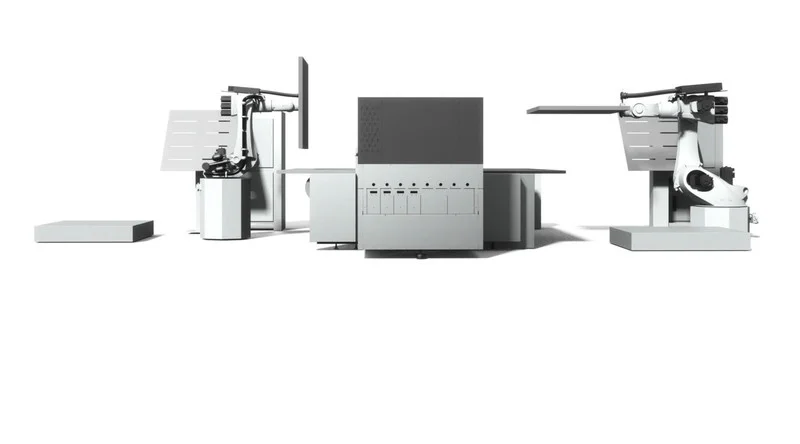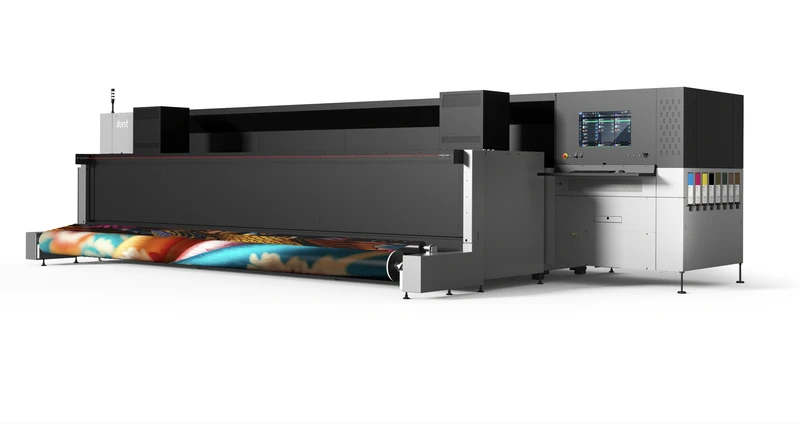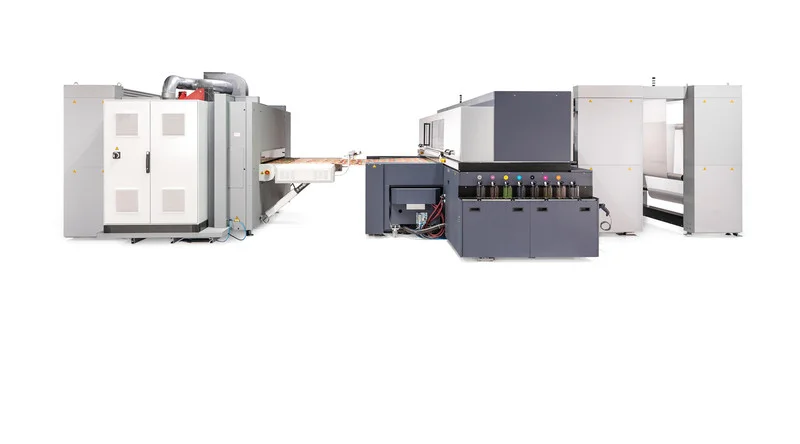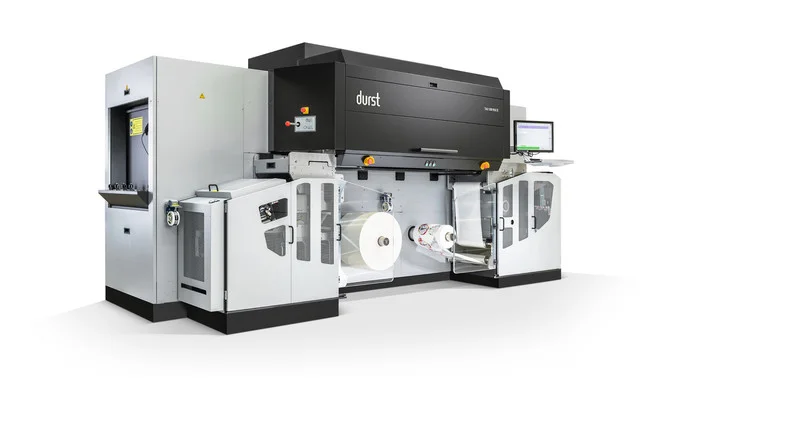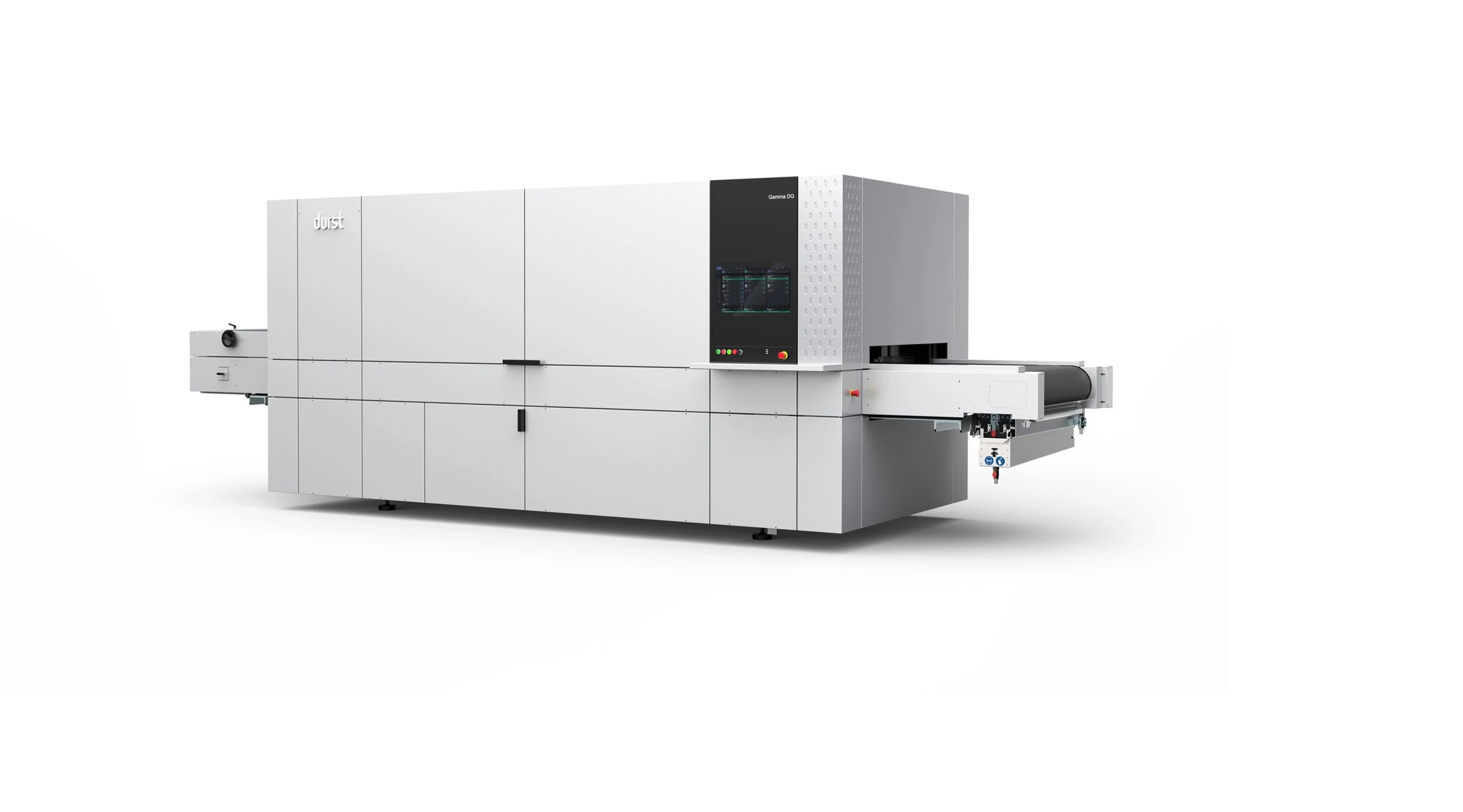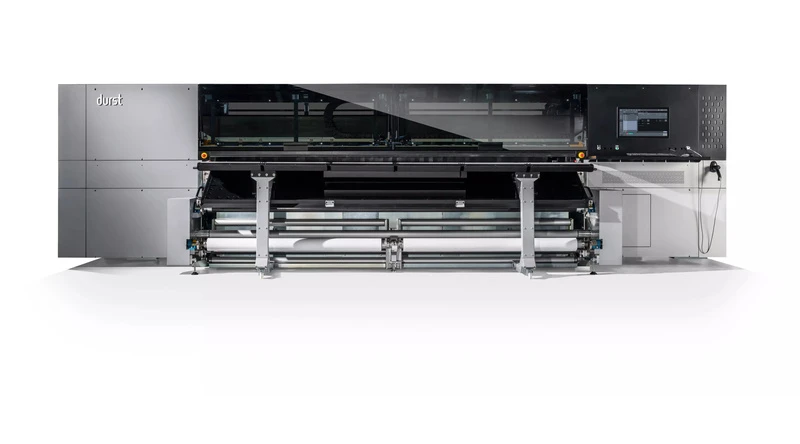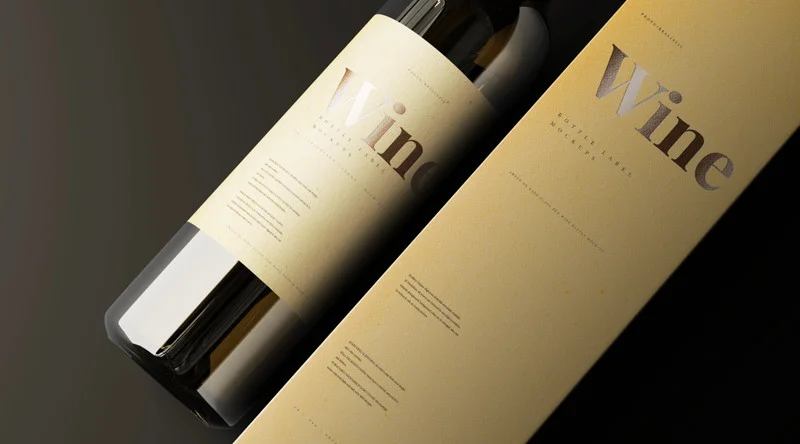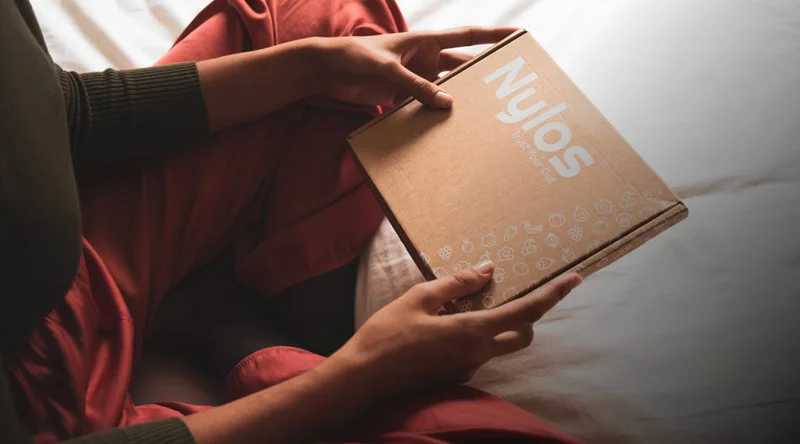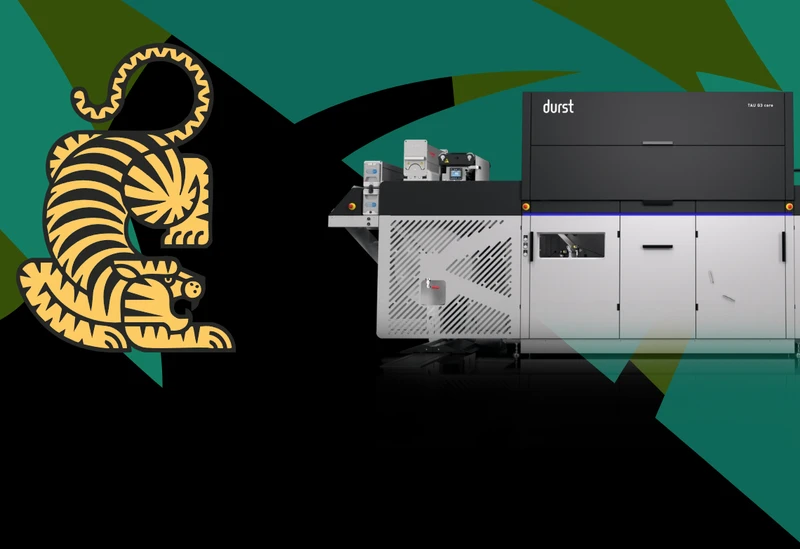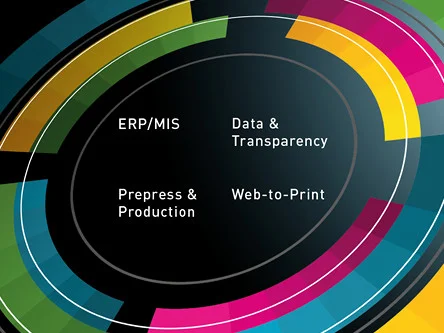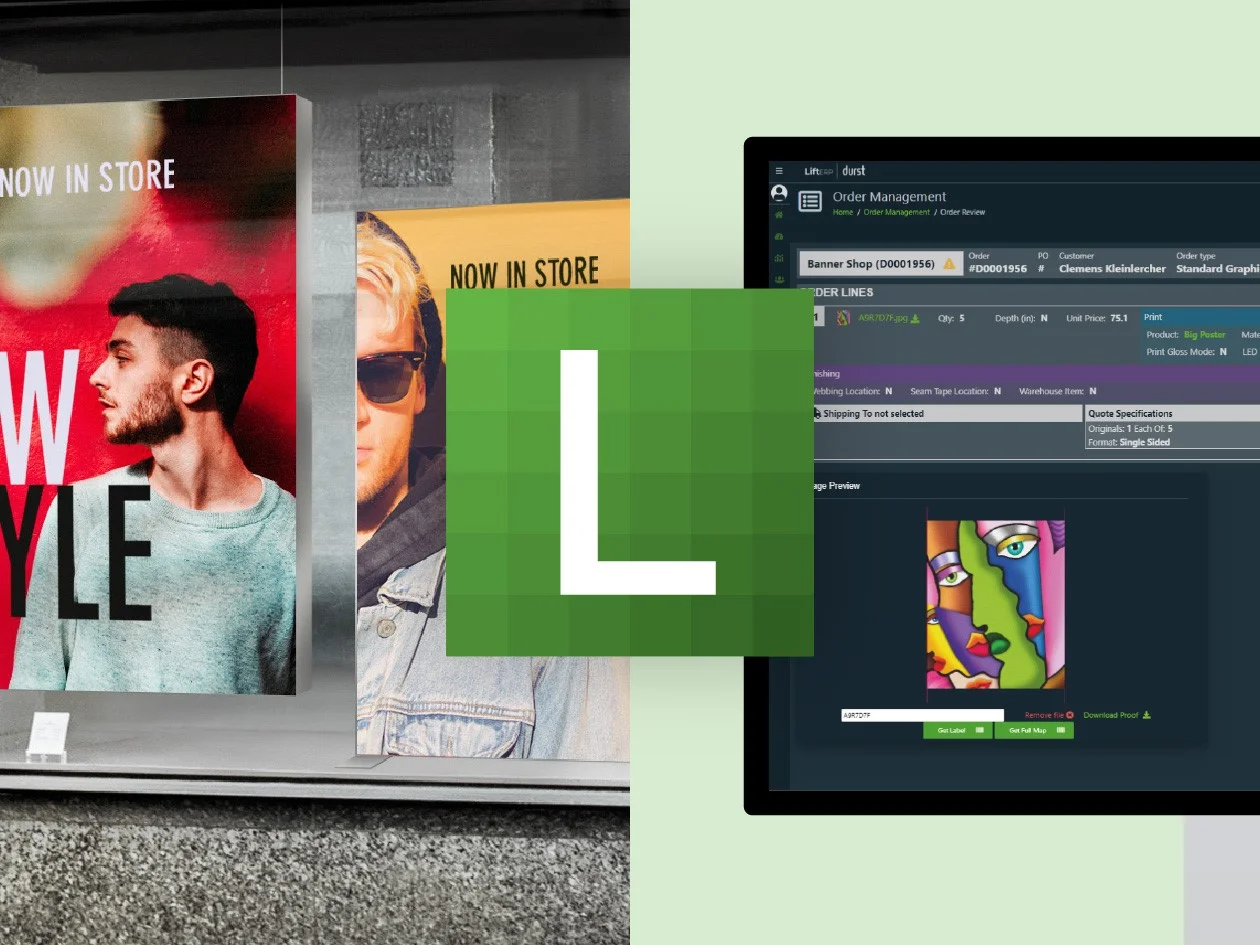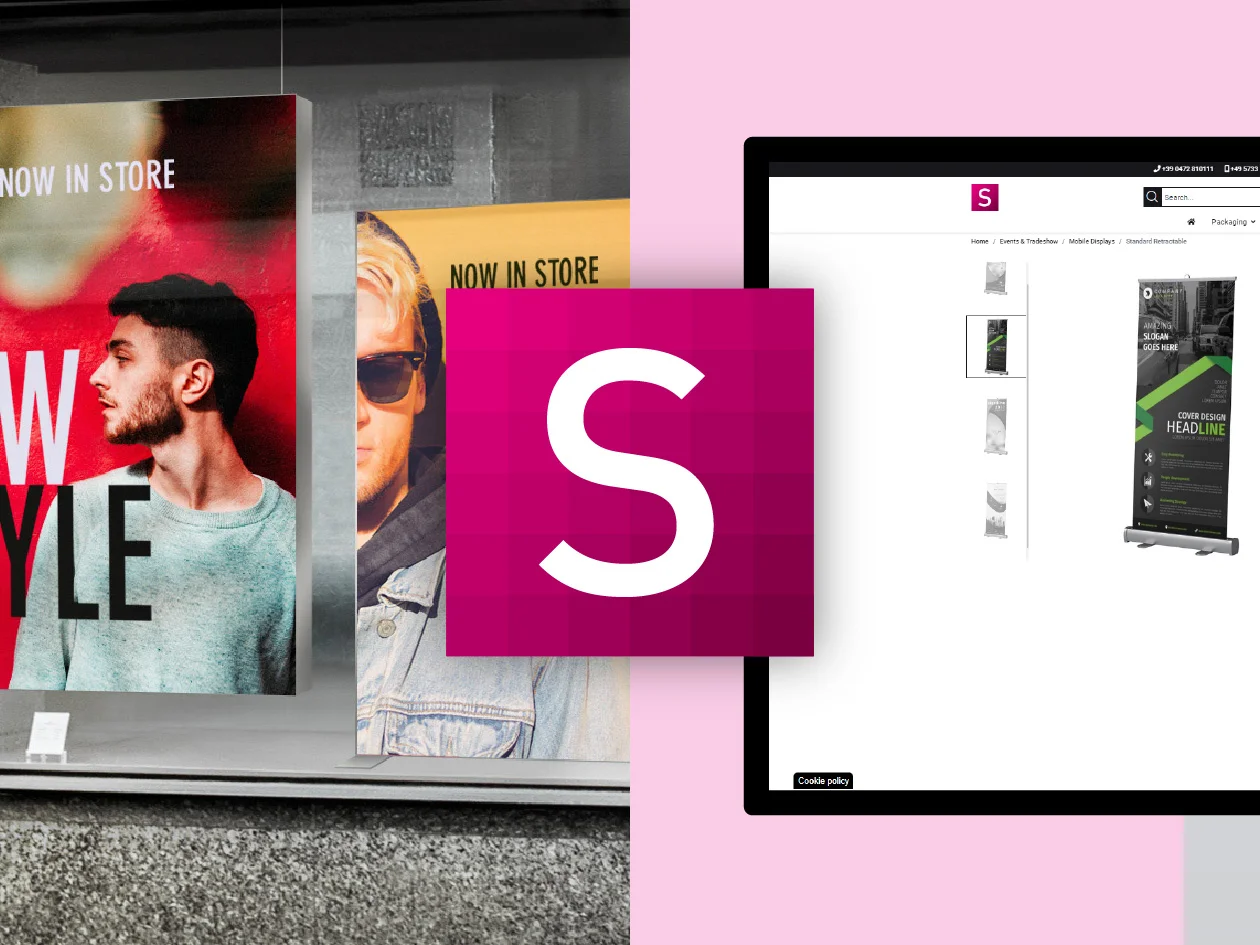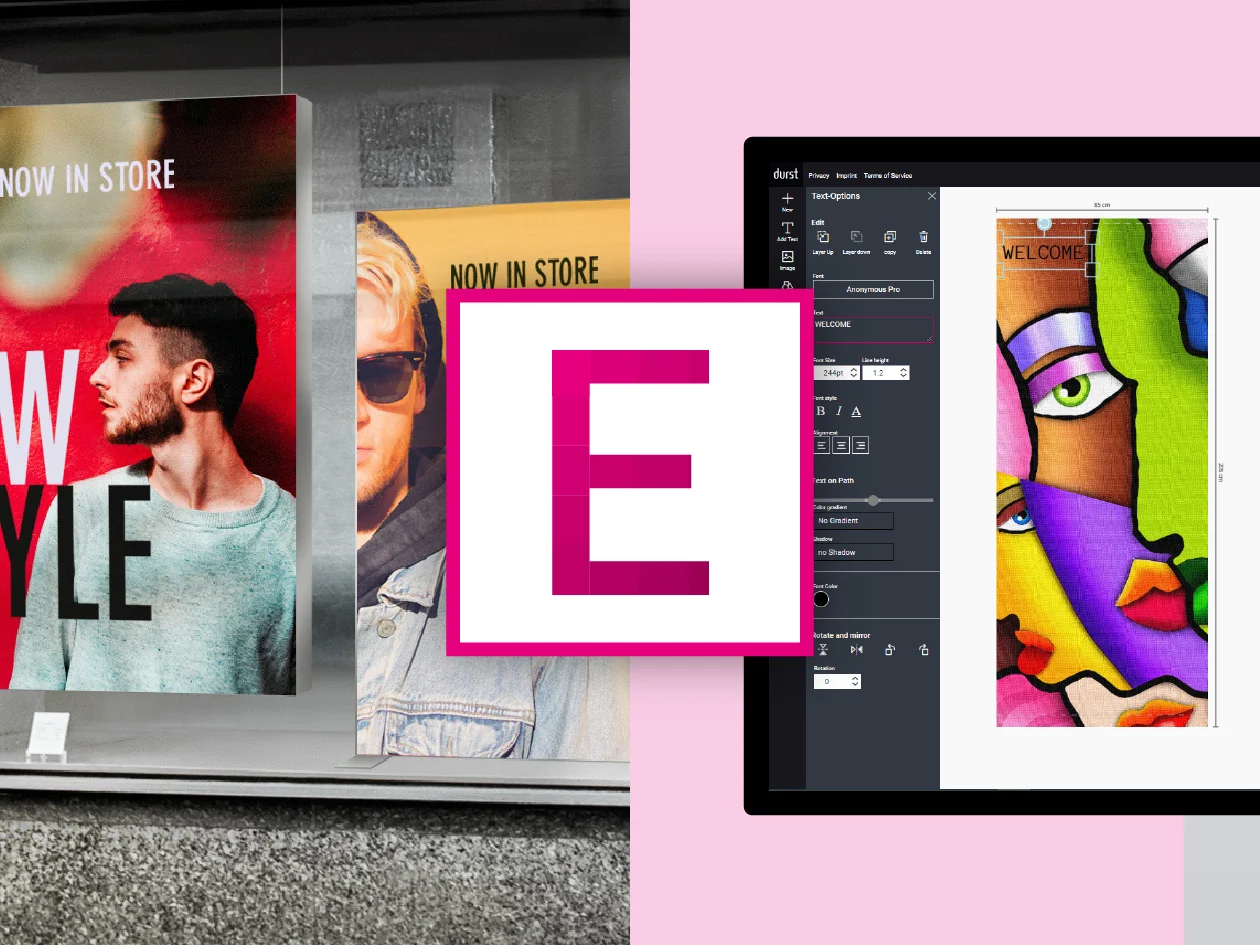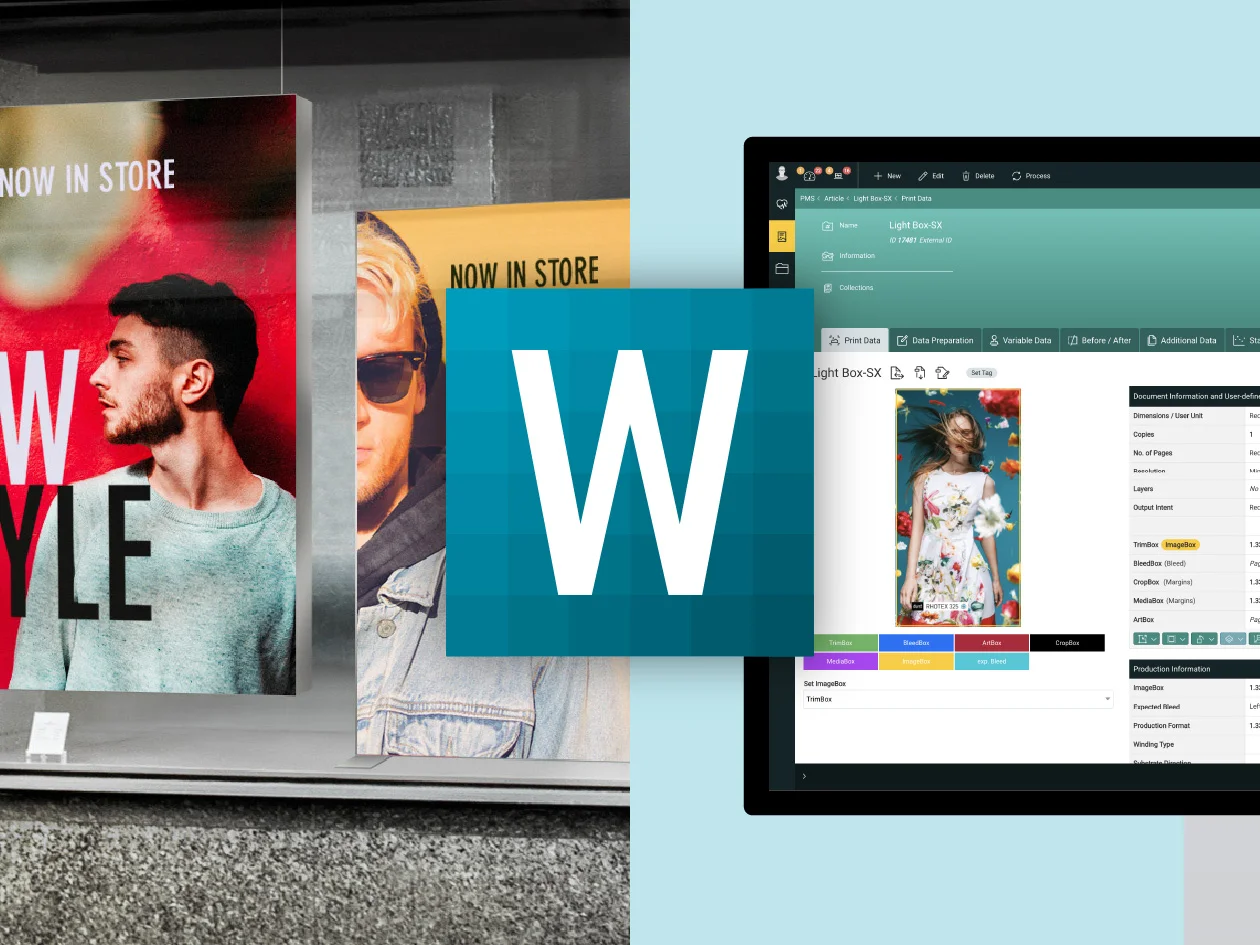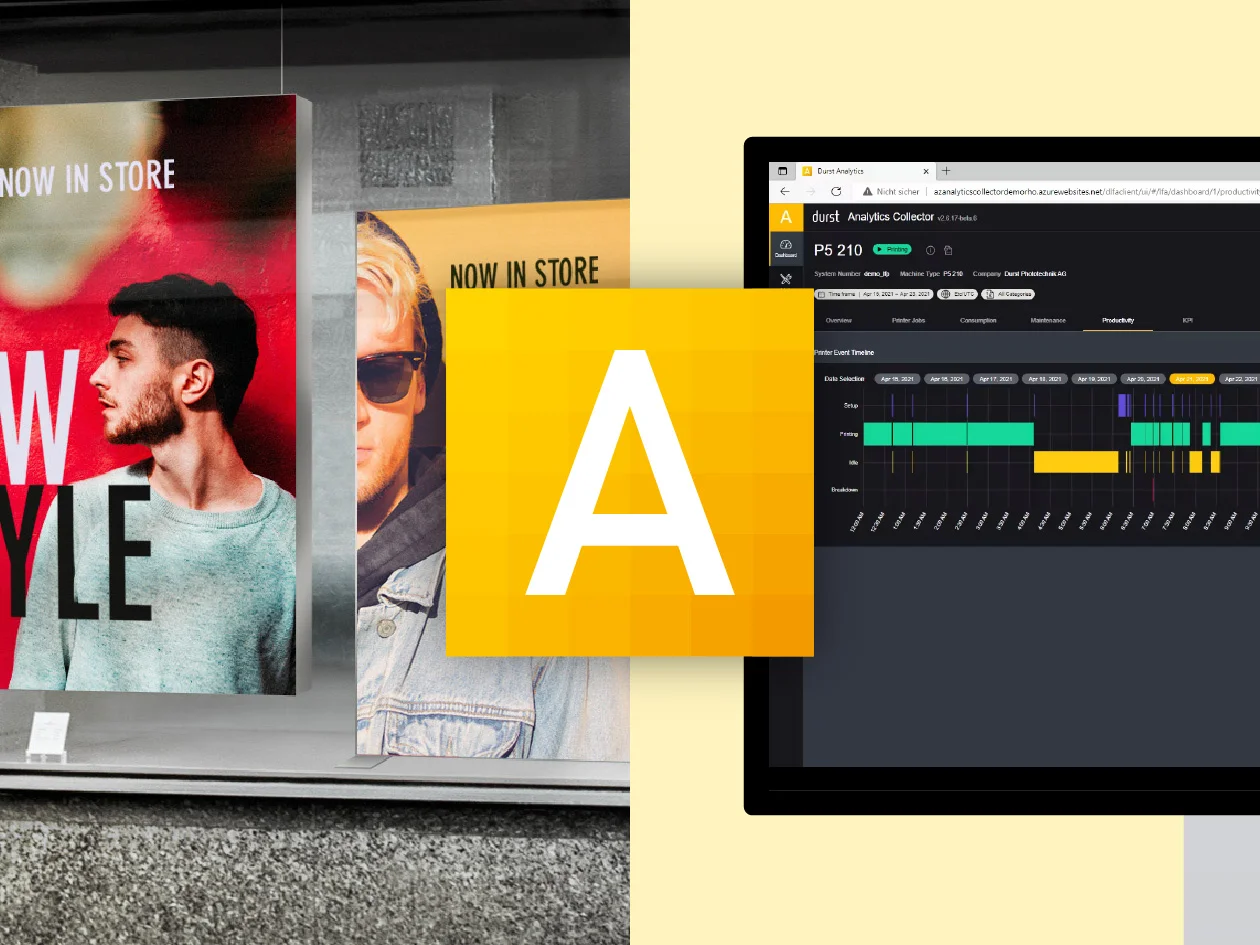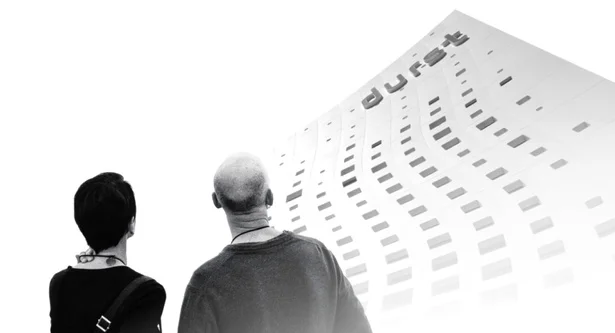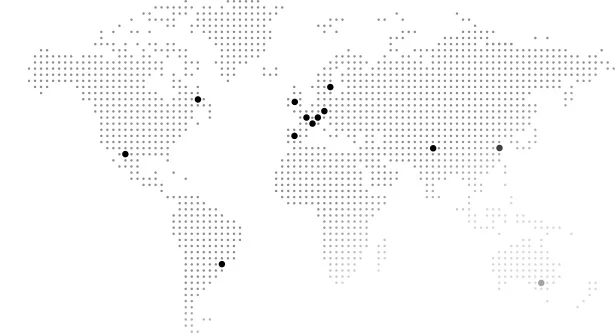Investing in the digital future
SUCCESS STORIES
Malaysian converter Practimax strongly believes in the efficiency of its three Durst digital presses and predicts a bright future for digital print in the region.
Practimax was founded in 1999 in Malaysia with just three employees, one rotary press and a clear vision to become one of the country’s leading and most productive label manufacturers. Today, nearly a quarter of a century later, the company’s team counts more than 100 people who manufacture millions of self-adhesive labels for multinational corporations and well-known retail brands.
The manufacturing facility operates 24 hours a day to deliver paper, film and foil labels for primary packaging, booklet instruction labels and product identification tags for various markets, including food, cosmetics, household, body care, toiletries, pharmaceutical, chemical and electronics.
Practimax is on its way to achieving its vision by delivering high-quality products, fast delivery and cost-efficiency. One of the pillars of its success so far was reliability and the ability to respond to urgent requests from customers.
Green operations
Adopting a more sustainable approach in businesses has become imperative, especially after the pandemic. While the printing industry, in general, faces its own set of challenges in approaching sustainability, all efforts done by the players in the sector to comply with the environmental, social and governance (ESG) principles will surely make a difference in moving the industry forward.
Practimax, an established label manufacturer in Malaysia, is keen to move towards sustainability - slowly but surely. One of the first steps is the implementation of an enterprise resource planning (ERP) system and using alternative materials that are more operationally sustainable. The ERP system, which Practimax develops in-house, helps to reduce paper usage in the production facilities’ offices to ensure a more efficient and optimized overall management.
‘We have a good relationship with the major material suppliers, such as UPM Raflatac and Avery Dennison. Whenever new, more environmentally friendly materials are becoming available, the suppliers will introduce them to us, and we always try our best to procure them and use them in our production,’ says Practimax CEO Kate Yap.
Since its incorporation, Practimax has always emphasized quality and speed, making it stand out from the competition. The company has a dedicated sales and service team that is well-equipped with the technical knowledge and problem-solving skills to serve its customers.
‘We greatly emphasize the printing quality. We always choose the best materials for the labels and stickers,’ adds Yap.
The key to Practimax’s success is an excellent team of people, so the company management ensures they are given the best tools for the job.
Investing in Durst products
Yap shares that Practimax mainly caters to the local market. Its clientele ranges from fast-moving consumer goods (FMCG) companies to oil and gas players. ‘Normally, we produce labels for FMCG products - toiletries, personal care, etc. We also produce labels for lubricant packaging,’ she says. ‘As for the export market, we only cater to personal care products.’
Practimax’s mission is to provide its customers with reliable and cost-effective products using state-of-the-art technology in printing. The company has consistently invested in various presses to cater to the changing industry demands.
Staying true to its goal, Practimax was the first to introduce Durst Tau 330 digital UV inkjet press in Malaysia. This high-speed, high-quality and highreliability technology allows the company to produce outstanding quality images with a vivid superior color appearance. This Durst technology delivers consistency in quality from the first to the last label and from the first run to subsequent runs, produced over a more extended period.
‘We have been using Durst technology for the last decade. We currently have three Durst machines. The consistent results and the speed of the Durst machines are fantastic,’ says Yap. ‘The resolution of the printing is also excellent. It is a digital machine, so we do not need to spend significant time setting it up, which conventional printing requires. There are no printing plates, films and some mixture of colors. With a digital machine, it is just a click away. The quality and color consistency that the Durst can produce makes our life better as owners of a label converting business.’
Before purchasing the first Durst Tau 330, Practimax was an entirely conventional printer, operating two of its Gallus EM280 flexo presses. After the Durst Tau installation, digital label printing could take up to 50 percent of the company’s production.
According to Yap, digital printing today has become increasingly popular. She thinks it might have even outpaced flexo printing in Practimax’s operations despite digital and flexo having their pros and cons.
Specific jobs, which Practimax previously ran on silkscreen, needed high-density ink and had a particular technical requirement, such as using a rotary block. Durst Tau can handle these jobs with a press of a button, and the company does not have to allow three to four hours of set-up time. According to the company’s management, all the silk screen jobs were converted to digital print shortly after the new machine installation.
‘We cannot compare an apple to an orange. Both have different types of quality, but digital printing can cater not only to short-run jobs but also to medium and long run, thanks to the cost efficiency and fast turn-around. Many of our customers also require special features such as the silk-screen-like effect and additional security features on the print that the Durst machines can produce,’ emphasizes Yap.
Supporting one another
Practimax secured all its Durst machines through the company’s Southeast Asia partner - EP Digital (EP means to print in Chinese), which has over three decades of experience in the professional printing industry. It offers sales and services of a wide range of high-quality graphics art equipment but specializes in digital printing presses and related consumables.
Yap notes that both companies are businesses that rely on one another. As a client, Practimax receives round-the-clock technical support from EP Digital.
‘The after-sales service and support we receive from EP Digital are excellent. The company has a dedicated team and gives us 24-hour technical support. We just need to call them for assistance, and they will come to our facilities within hours to resolve the issue,’ she adds.
EP Digital regional manager Sean Yap describes Practimax as a company that understands the industry’s future, especially in digital printing. It is a company determined to differentiate its selling value from other competitors.
‘It is the pioneer of digital printing, the first to own a digital inkjet machine in Malaysia, back in 2013. Now, it operates three different Durst machines, which are running 24/7 and offer different resolutions and speeds,’ comments Sean Yap, adding that digital printing is definitely a growing market in the region.
Sean Yap continues: ‘What makes Practimax particularly special is the utilization of digital printing technology to provide product authentication and offer security printing. Compared to conventional machines, digital machines can produce variable printing in a single pass. You can print different copies when you go digital this is especially helpful for product labels that require running or serial numbers. This makes it easy for people to track and trace the products - boxes, bottles, etc.’
Sean Yap highlights that with the outstanding support from Durst service team leader Manuel Gruber and his team, EP Digital was able to build a team of factory-trained engineers in the Southeast Asia region, available 24 hours a day and seven days a week to support Practimax and other customers in the area.
He believes that the availability of technical support from EP Digital and the Durst branding is what attracted Practimax to choose EP Digital as its business partner.
‘Being Durst’s SEA partner, EP Digital supports printers in the region by having our trained engineers in Indonesia, Thailand, Malaysia and Vietnam,’ he adds.
Kate Yap reveals that the company recently almost doubled the size of its factory by moving from a 13,000 sqft to a 24,000 sqft production facility, reflecting its significant growth.
She also touches on Practimax’s near future, where she can see potential investments and is convinced it will be another unit from Durst’s portfolio.


